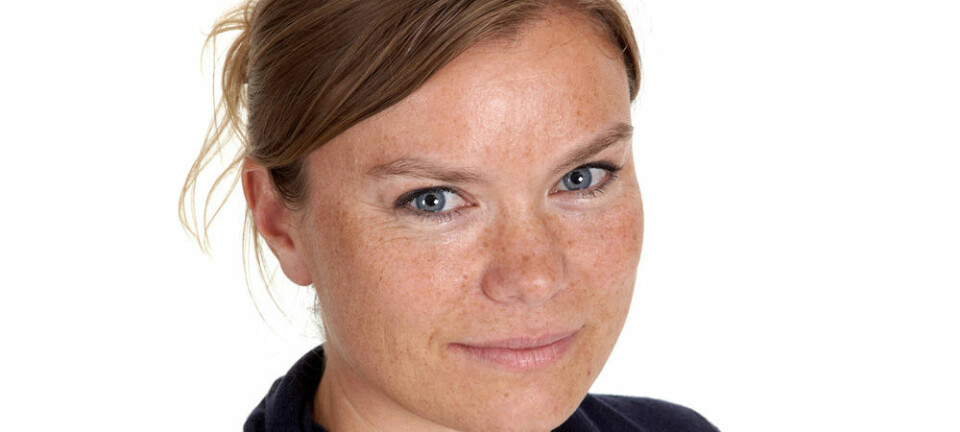This article was produced and financed by BI Norwegian Business School

Eight trends that will govern us
Do you wonder what makes you buy particular goods and services? Researchers have identified eight essential trends that will govern our lives.
Denne artikkelen er over ti år gammel og kan inneholde utdatert informasjon.
There are many factors that determine which goods and services you will buy as a consumer. Consciously or unconsciously we also let ourselves be governed by consumer trends.
These are trends that intervene with our lifestyles and influence our daily lives, our attitudes and behaviour as consumers.
Researchers at BI Norwegian Business School have conducted a study to identify emerging trends among consumers.
They were particularly concerned with uncovering trends in their infancy and which are assumed to grow and influence our lives to a greater extent in the years to come.
Looking towards the future

Professor Tor W. Andreassen and Associate Professor Line L. Olsen, together with Associate Professor Giulia Calabretta at Delft University in the Netherlands, have conducted analyses of essential phenomena and changes that have occurred in society in recent years within technology, the environment, economics, politics and social areas.
The researchers also conducted in-depth interviews with 15 hand-picked experts in the fields of innovation and technological change. They were interviewed both as experts and consumers.
Trendspotting
The research trio characterise the method as “Trendspotting”, an approach to future-oriented thinking that aims to imagine potential directions for product and service innovation.
The mapping of consumer trends was done to help companies become more accurate when developing and launching new products on the market.

On the basis of their outside world analysis and in-depth interviews, Andreassen, Olsen and Calabretta identified a total of eight essential trends they assume will influence our lives in the years to come.
The researchers tested frameworks and the eight identified trends for various target groups.
Trend 1: Mobility
As a result of increased competition in the aviation industry, the opening up of Eastern Europe, the expansion of the EU and increased purchasing power, more and more of us are on the move. We move frequently from place to place for shorter or longer periods of time and distances for professional or private reasons, such as education and holidays.
Moving is not only cheaper as airfare rates have been reduced, but also simpler with a single currency in Europe, the free flow of labour and faster with more direct connections.
Digitalisation of financial and public services and extensive electronic networks provide less personal stress and adaptation difficulties, and prevent relationships from breaking up due to steadily increasing mobility.
Trend 2: Always logged-in
We want to connect to the internet for information and services whenever and wherever. The emergence of smartphones has stimulated this further.
The prevailing mindset is that all immaterial services and social networks must be available at all times.
Trend 3: Return on time
Since time is limited we want the maximum benefit from time allocation. Individuals optimise their return on time when they can free up time and fill this time with the maximum possible experiences for self-fulfilment.
Return on time can be divided into three distinct areas:
Saving time by re-prioritising tasks and activating family, friends and acquaintances for sharing tasks. Buying time by investing in machines, e.g. household appliances, technology such as smartphones and tablets or services, e.g. Molly Maid, one can do several new things while the old things get done. This is about balancing between time spent on oneself, family, friends and work.
We want to find the best balance between the quality and quantity of experiences. We spend as much time as possible on the activities that provide the best possibilities for self-fulfilment, efficiency and well-being or happiness.
Trend 4: Quality data faster
Digitalisation and low distribution costs have created an explosion of day-to-day information, e.g. news and entertainment. Social media become increasingly more important channels for updating the activities of friends, family and acquaintances.
In the endeavour to increase the return on time, consumers feel that efficient tools for filtering and organising information can be helpful. Increased quality of information allows consumers to be more updated and pave the way for better use of time. We see a shift from wanting a lot of information to wanting relevant information – fast.
Trend 5: Nowism
People increasingly engage themselves, and spend increasing amounts of money, in activities with high experiential content and benefit
While previous generations were taught to invest before they could reap – education, family and career before enjoying retirement, more and more people today want to reap while they invest. Students’ need for extra money may be due to them wanting to enjoy the good things in life also while they study.
Even though the experiential consumption is not new, it gives living in the here and now an extra intensity dimension. Instead of looking forward to a long, comfortable holiday once a year we choose rather to take more but shorter holidays – long weekends in big cities.
While experiential consumption previously had to be extraordinary and unforgettable, we have less time to remember and relive our experiences since we now move on quickly to the next experience.
Trend 6: Look at me now!
We are drawn to challenges that entail tackling the impossible. We like to show off our skills and mastery of knowledge. Showing off to large groups of people becomes a source of pleasure and well-being.
Consumers achieve satisfaction and status by cultivating the body and soul and by impressing an appreciative audience with what they know and can do rather than what we consume.
Trend 7: Protection of privacy
With constant access to the internet and the opportunity to shop or seek information through computers, tablets or smartphones, consumers leave a number of electronic tracks daily.
While access to the internet is largely perceived as positive, the negative side of the information society is an increase in the probability of misuse of information and criminal acts, for example identity theft.
People respond with a wait-and-see attitude towards sharing sensitive information, protect themselves by limiting what information can be collected about them and buying software that deletes electronic footprints when they are on the internet.
Trend 8: Sustainable lifestyle
On a personal level this trend is about living a “better life”. We want to live an active life longer, be attractive to our significant other longer, avoid diet-related illnesses such as diabetes or muscular-skeletal afflictions later in life, or put off being dependent on others for as long as possible.
In terms of society this is about reducing consumption, recycling and restoration. In practice this can be seen through e.g. a desire to reduce CO2 emissions by using public transportation, flying less frequently or buying local produce.
External links
- The article is based on results from the research project Value-driven service innovation from BI Norwegian Business School. The project was supported by the Research Council of Norway.
- Tor W. Andreassen's profile
- Line L. Olsen's profile

































